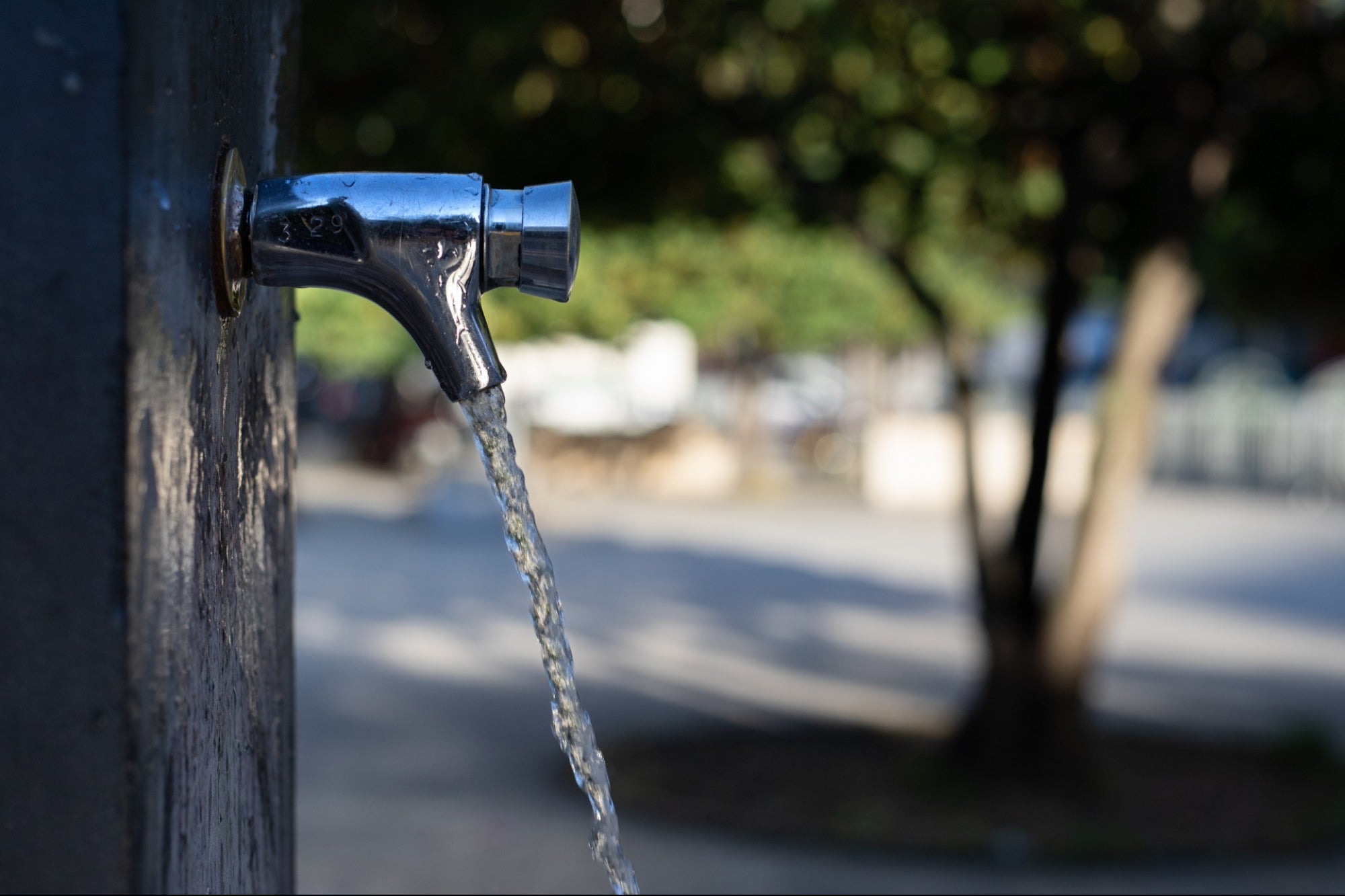Safeguarding Potable Water During COVID-19 with Enabled Technologies Over 2 bn people across the world experience high water stress and about 4 bn people experience severe water scarcity for at least 1 month every year
By Poonam Sewak
Opinions expressed by Entrepreneur contributors are their own.
You're reading Entrepreneur India, an international franchise of Entrepreneur Media.

Water supply sector and especially safe drinking water availability continues to face increasing pressures due to the declining water resource, increasing population, impacts of climate change and the onslaught of the current COVID-19 pandemic. To improve the resilience, reliability and sustainability of water, innovation and technology have a vital role to play.
According to the United Nations, World Water Development Report 2019, over two billion people across the world experience high water stress and about four billion people experience severe water scarcity for at least one month every year.
Even in India, the numbers are alarming with nearly 150 million people lacking access to safe water. Most of these vulnerable communities use unsafe water sources, which causes major water-borne diseases. Owing to a bad economy and poor infrastructure, it is a challenge for these communities to have access to safe drinking water.
As the pressure to supply safe drinking water is mounting, we see innovations in water purification technology, ranging from desalination of sea water, water from air, solar energy for water purification, high recovery membranes, nano filtration technologies, mobile water treatment facilities. However, the sector needs to expand solutions beyond technology, supply, monitoring and data analytics to excellent energy efficiency and eco-friendly operations that are low cost and local supporting global quality.
While governments continue to provide access through large utility water, private sector and Small Water Enterprise (SWE) implementers are deploying solutions ranging from remote sensing for operational performance monitoring, water accounting, water quality control and digital money. They are using internet of things that enables reliable 24x7 delivery of safe drinking water though their automatic Water ATMs, which, when coupled with online remote training, new computing data analytics, provides insights to solve for sustainability through targeted intervention. These technologies help serve customers digitally, manage water supply remotely and in real time.
The SWE are being operated and maintained by local women providing safe water access to nearly 3,000-5,000 people living in the nearby vicinity. Each innovation was designed to address specific training and skilling, operating, monitoring, consumer convenience, maintenance and repair, and environmental challenges to make the proposition attractive to them so that they move beyond the traditional agriculture, craft and artisan mindset to water treatment and delivery.
As a result, each water treatment plant is equipped with 24x7 automatic water dispensing that is enabled through RFID cards, UPI payments of coin dispensing, remote monitoring system that reports the plant performance and water quality through sensors and "Internet of things', online digital training and skilling courseware, decentralized cashless procurement of supplies and maintenance through established identified solution providers, online CMS - Complaint Management Systems for quick closure of complaints.
All these measures have ensured reliable services where SWEs serve water with less than 2 per cent downtime. Today these women maintain affordability, reliability and quality from their SWEs and operate and maintain the water stations while earning USD 40-80 per month.
The increased flexibility and security, digital finance empowers customers to plan, budget for, and manage their water use. Customers are able to top-up RFID water ATM cards via cashless payments at any place and time. Additionally, automated data collection will provide a rich dataset from which we can yield insights on how best serve consumers and design activation programs that motivate to purchase more safe water more often.
Usage of technology for remote monitoring of water stations makes it easier to acquire accurate and timely information promoting predictive maintenance leading to higher efficiencies and protecting damage of expensive machine. It removes the chance of human error in data collection and helps in providing a comprehensive suite of technical data more frequently. This data can be further utilized by operators to address potential problems.
Predominantly, communities do not understand the concept of paying for water especially when there are free contaminated sources readily available. To educate on water quality and safety standardized information, education and communication campaigns in audio -video format in local language messaged using tablets delivered rapid and transformative results.
Skilling to the women entrepreneurs were delivered using a mix of online training programs in local language and onsite practical training. They were supported not only with extended lessons and hand holding but also with refresher courses.
Technology enabled Small Water Enterprises has proven that framing opportunities for women, identifying and solving for social, information and technology barriers is slowly changing the landscape where women are going beyond gendered roles and responsibilities and are successfully managing their safe water source and earning livelihoods.










